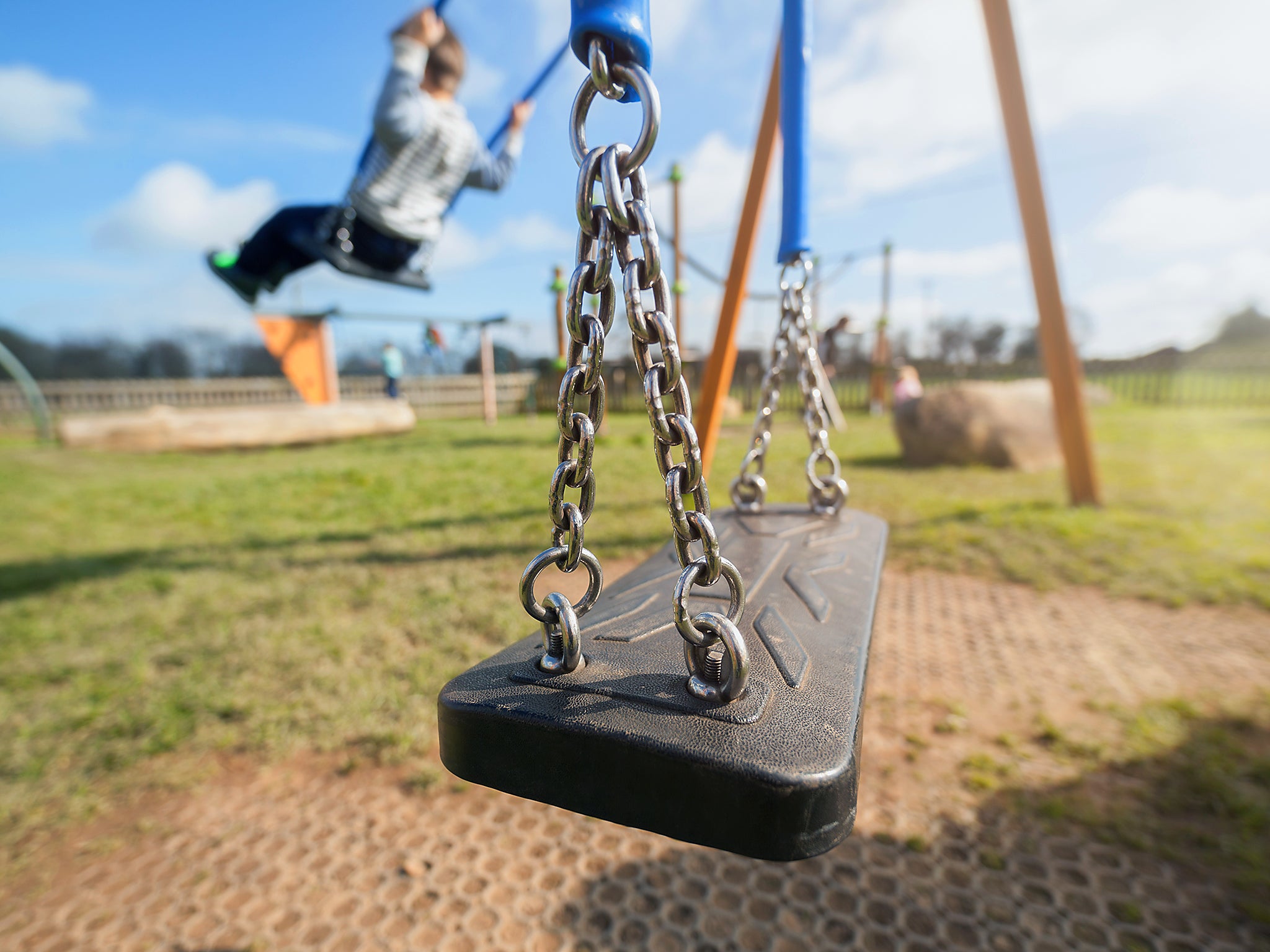Children’s physical development stifled by ‘undue concerns’ about health and safety in nurseries, Ofsted warns
'A child who hasn’t built up strength by doing the monkey bars will struggle to write'

Children’s early physical development is being stifled by “undue concerns” over health and safety in nurseries, Ofsted has warned.
Pre-school children are being denied opportunities to build muscular strength and dexterity because of fears they will hurt themselves during exercise, according to the education watchdog’s annual report.
In some cases, children are not allowed to play on a climbing frame, or are not taken on day trips, because early years providers are frightened of the ramifications, Ofsted said.
And a lack of physical activity can make it harder for children to write, while a narrower experience of the outside world can limit their vocabulary, a senior Ofsted official warned.
The report, released on Tuesday, says health and safety rules can lead to providers “compromising on the substance of their provision”.
It highlights that the best nurseries encourage toddlers to be busy and active to ensure they develop their muscular strength and dexterity. But it adds: “We also know that in other settings this good practice is stifled by undue concerns about the risk and safety of such activities.”
The report warns that without “some level of risk”, children’s natural inquisitiveness and their opportunities to learn and develop are curtailed.
Amanda Spielman, chief inspector of Ofsted, suggested fears about health and safety rules were widespread among early years settings.
She said: “There’s a great deal of concern about children hurting themselves, concern about children having the lumps and bumps that we know are part of childhood.”
The report calls on childcare settings to take a “common sense approach” to managing risk.
Ms Spielman added: “It is very important that children can develop physically, explore, do all those things that children need to do to test their physical boundaries.”
Gill Jones, also of Ofsted, said parents have contributed to this culture of fear. She said: “Some private providers have to work very hard with parents because parents want their children to be really safe when they leave their baby and their toddler in a setting.
“Parents’ first concern is going to be their safety, but the provider has to ensure that children take risks. So a child climbing on a climbing frame has to be well supervised.
“And there has to be the right element of risk there. But some more nervous providers will not take that risk because they are frightened of the ramifications.
“They might not take children out on visits because of road safety. It is a fear thing.”

She added: “A child that hasn’t had upper body strength built, who hasn’t done the monkey bars, will not have the physical strength to write. It is linked, so that is really important.”
Speaking about day trips, Ms Jones said: “It is about the world around them and developing a language, an understanding, so being able to kick through the leaves and splash in puddles is really important. If children don’t get those experiences, they are not going to get the language that they need.”
Melanie Pilcher, quality and standards manager for the Pre-school Learning Alliance, said: “Physical development should be an essential part of a quality early education and I’ve no doubt providers will be pleased to have today’s reassurance from Ofsted.
“It’s important providers are confident when explaining the benefits of ‘riskier’ activities, and today’s comments will hopefully also help parents themselves better understand what they can do to ensure children have the opportunities they need to develop physically.”
She added: “There’s a danger that our risk-averse society can limit children’s sense of adventure. But risky-play is an important part of early learning because it helps children explore and develop physically, while also teaching them about boundaries and rules.
“What’s important for practitioners and parents to understand is how we manage that risk so children are free to develop without having their horizons are limited by perceived dangers or threats of litigation.”
Ofsted will research physical development in young children over the next year.
Join our commenting forum
Join thought-provoking conversations, follow other Independent readers and see their replies
Comments
Bookmark popover
Removed from bookmarks